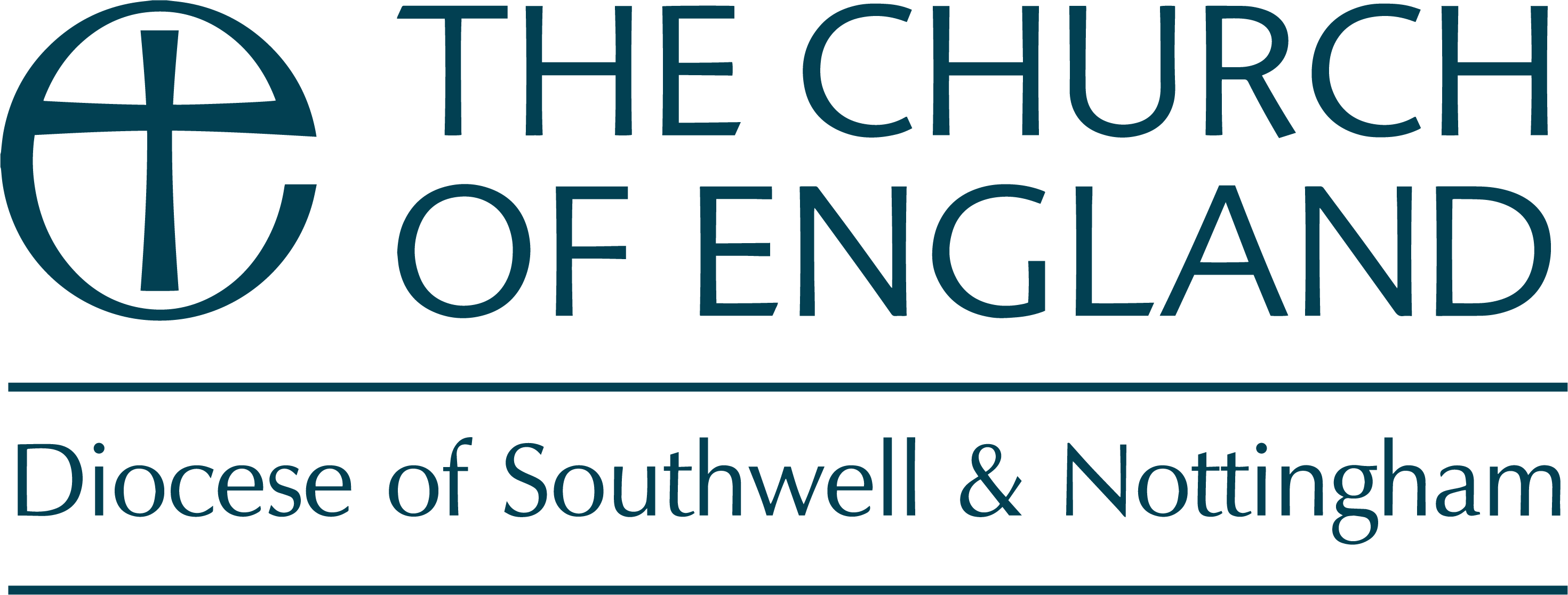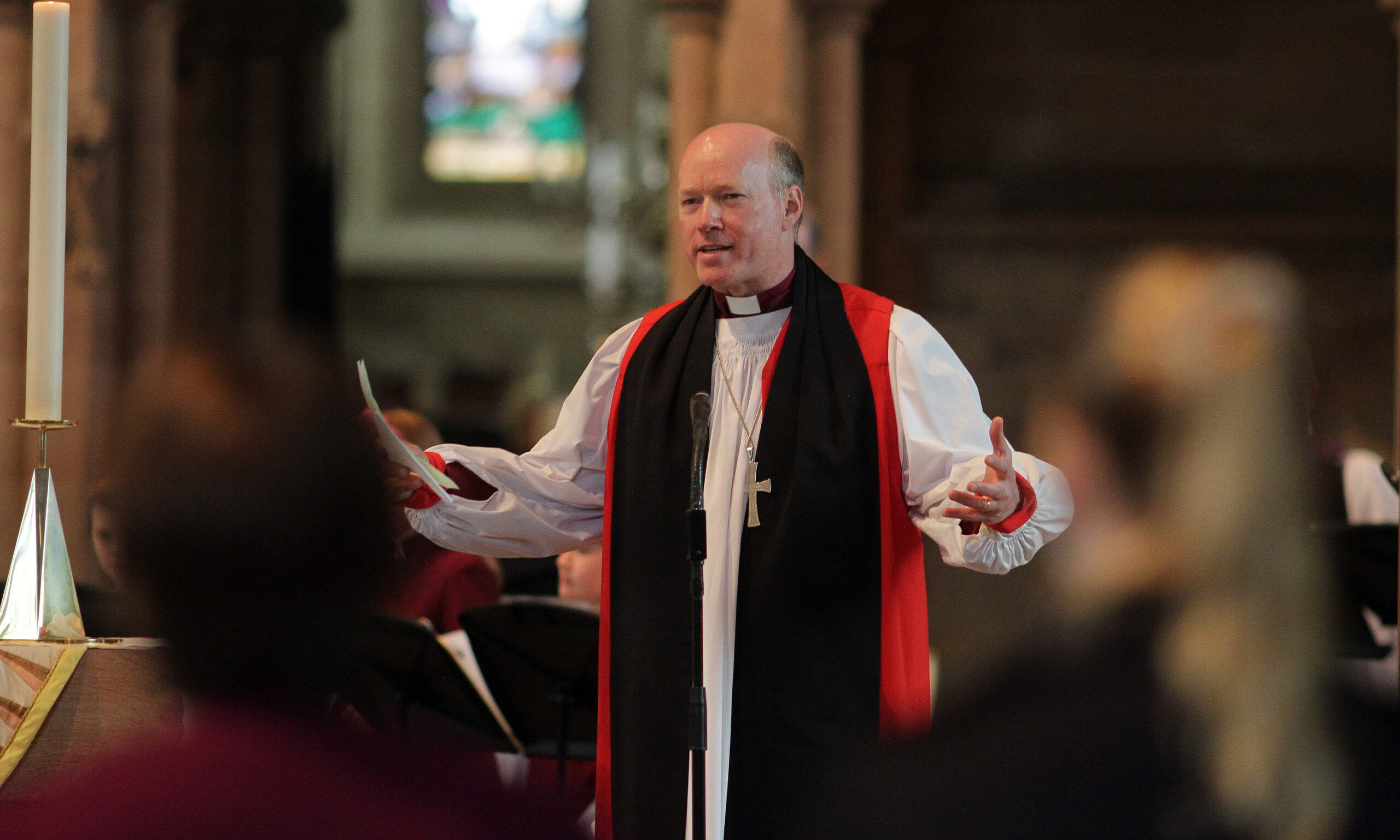Bishop Paul’s Christmas Sermon from Southwell Minster
In his Christmas sermon in the Cathedral, Bishop Paul speaks about the peace that Jesus came to bring, and how knowing peace with God sets us free to be courageous peacemakers in our world
today.
He also gave special thanks for peacemakers working in conflict situations around the world, also for those working in the NHS and social care helping to support people living with the challenges around mental health.
Read Bishop Paul’s Christmas Sermon in full below
“Of all the bible passages that are read at Christmas this one in Luke’s Gospel chapter 2 is probably the most famous and familiar. And in this passage, there is a verse that is perhaps the most famous Christmas verse, which is verse 14, when the shepherds hear the great company of angels singing,
“Glory to God in the highest heaven, and on earth peace among those on whom his favour rests.”
In this most famous verse, in the most famous passage, there is one word that sums up the whole message and meaning of Christmas:it’s the word ‘peace’. This is what Christmas is all about: peace on earth. And almost everyone knows that, even if they don’t know much else about Christmas.
But what is this peace that Jesus was born to bring to our world? Because if it is the end to conflict, bloodshed and war, then you would have to acknowledge that there is a problem.
And if this peace is about having an inner sense of happiness then the mental health challenges so many are experiencing makes it hard to understand. According to a recent report released by the London School of Economics, the direct cost of mental health problems to the UK economy was 118billion pounds in 2022 and is still increasing. Nearly everyone here tonight will have some first-hand experience of the suffering behind that statistic, maybe in your own life or for someone you know and love.
And yet here we are again joining in, as it were, with the song of the angels that first Christmas, declaring.
“Glory to God in the highest heaven, and on earth peace…”
If what Luke meant, and what the angels meant, was that Jesus had come to rid the world of all conflicts and remove all inner turmoil and despair, then two thousand years on you have every right to say to Jesus and his followers, ‘Your project hasn’t worked.’
But that is not what the New Testament is saying. Jesus was not born to stop all wars or rid our lives of struggle and despair, though he promises he will do that when he comes again.
The peace the angels announced to the shepherds in the hills above Bethlehem, is about peace with God – peace between us and God.
The signpost to this comes in the preceding passage in Luke’s Gospel, at the end of chapter one, when Zechariah sings his own song after the birth of his son, John the Baptist. He says, “And you, my child, will be called a prophet of the Most High; for you will go before the Lord to prepare a way for him, to give his people the knowledge of salvation through the forgiveness of their sins…to shine on those in darkness and in the shadow of death, and to guide our feet into the way of peace.”
Put simply: God has made a way for us to be at peace with him. Where once we were separated from God because of our sin, we can now know him in a way closer and more personal than we could imagine. The much-loved carol Hark the Herald expresses it so well: ‘Peace on earth and mercy mild, God and sinners reconciled.’ (Though you’ll have to come back on Christmas morning if you want to sing that).
You see, the Christmas message doesn’t try to flatter us. It shows us that we need rescuing from our sin and selfishness, and the deep-down haunting fear that we are not worth loving.
The writer Max Lucado put it like this:
If our greatest need had been information, God would have sent an educator. If our greatest need had been technology, God would have sent us a scientist. If our greatest need had been money, God would have sent us an economist. But since our greatest need was forgiveness, God sent us a Saviour.
This is the gift that brings peace on earth, and when we receive this forgiveness for ourselves and experience peace with God, it sets us free – free from guilt and shame and unforgiveness. Then in this new freedom, eternally secure in the love God has for us, we find the courage, wisdom, strength and compassion to persevere in being a peacemaker for others and our world in all its need.
Jesus said, ‘Blessed are the peacemakers, for they shall be called children of God.’
So this Christmas, let us give thanks to God for peacemakers everywhere. Peacemakers working behind the scenes in places where there is seemingly irresolvable conflict and terrible suffering, and particularly this night in Israel and Gaza.
Let us give thanks as well for peacemakers nearer to home, especially for those caring for people with mental health challenges across the NHS and social care services, and particularly in families and among friends.
But most of all this Holy Night let us receive afresh the peace that Christ came to bring to us – peace with God through the forgiveness of the Cross. That is what we remember and celebrate in this Eucharist. With renewed vision, we may go from here, with Christ’s light shining in the darkness, guiding our feet into the way of peace – peace for our souls, peace for our world – this Christmas time and always.
Amen.”



